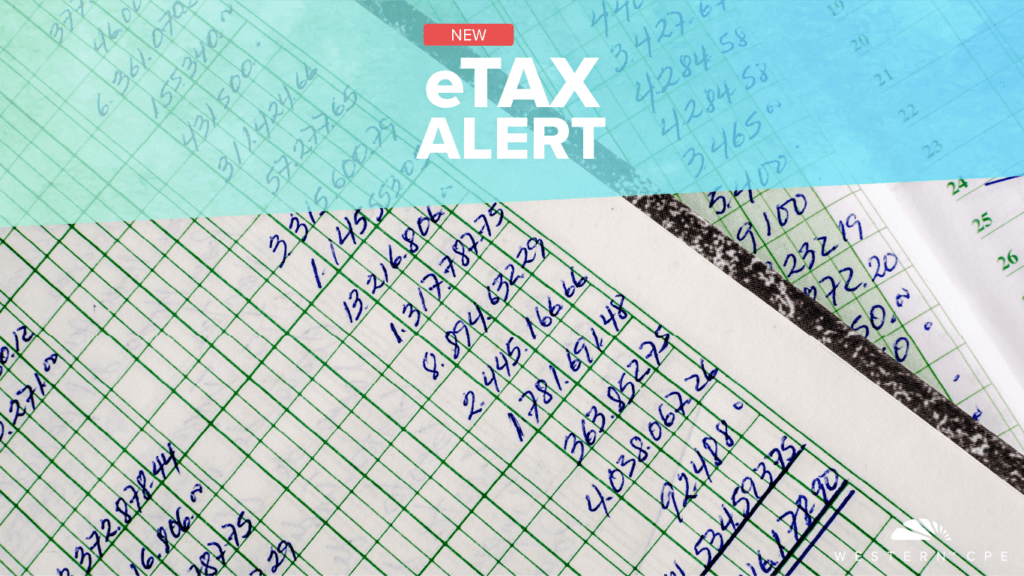
- |
- TaxByte
The Senate Finance Committee's version of the One Big Beautiful Bill Act (OBBBA) passed in
5 min read

In case you thought things were slowing down around the holidays at the IRS (or at Western CPE), slowing down they are not.
GUIDANCE DROP: The IRS has released initial guidance on the new corporate alternative minimum tax (CAMT), including a safe harbor test for smaller businesses to more easily demonstrate they aren’t subject to the new tax. Notice 2023-7, released on December 27, provides interim guidance on issues regarding the application of the new CAMT just days before the new law takes effect. The IRS has stated proposed regulations will soon follow.
BACKGROUND: The Inflation Reduction Act (IRA) (P.L. 117-169) created the CAMT, which imposes a 15% minimum tax on the adjusted financial statement income of large corporations for taxable years beginning after December 31, 2022. Generally, the CAMT applies to large corporations with average annual financial statement income exceeding $1 billion.
The CAMT applies generally to any company whose average annual adjusted financial statement income for three consecutive tax years exceeds $1 billion, hence why it’s known as a “book tax.” The IRS issued Notice 2023-7 to provide some clarity to taxpayers in advance of the CAMT effective date.
THE GOODS: Generally, Notice 2023-7 provides information on the following:
WHAT’S MISSING: Although this preliminary guidance wasn’t expected to answer all questions surrounding the no-doubt complicated implementation of the CAMT, some tax pros are saying it could have gone further. Notably, a few key issues remain unaddressed in the interim guidance regarding partnerships, according to Monte Jackel’s recent tweet, principal at Jackel Tax Law and well-known business tax policy expert:

Stay updated with more breaking tax-related developments by subscribing to Tax Bytes with Jessica Jeane, J.D.






Subscribe to our news, analysis, and updates to receive 10% off your first purchase of an on-demand digital CPE course.